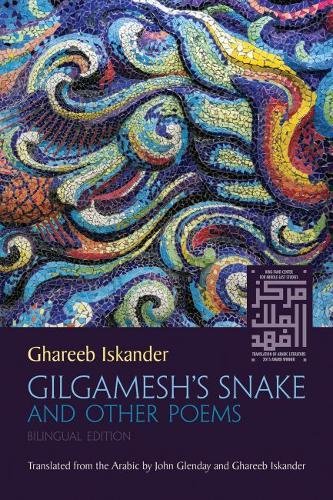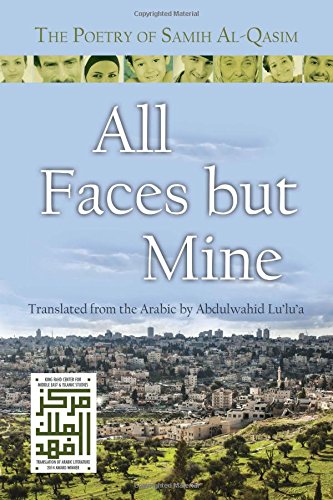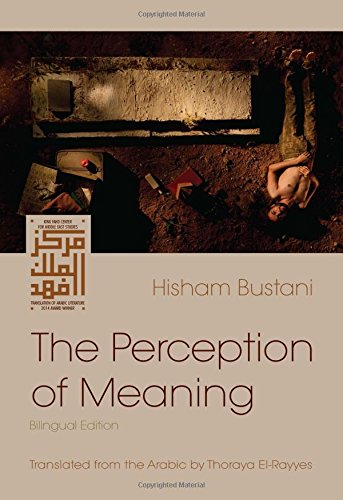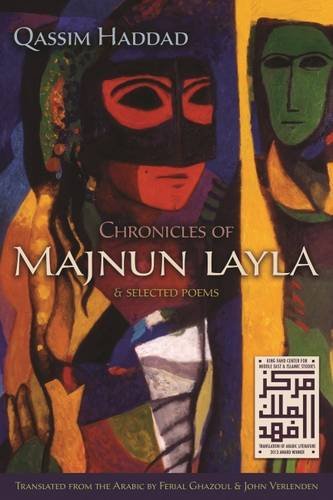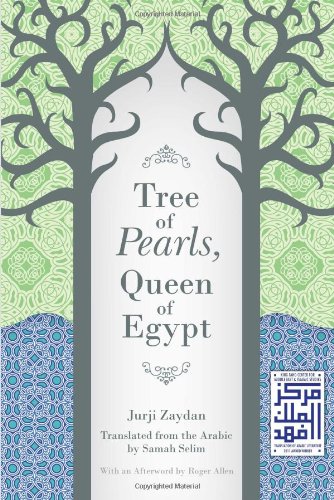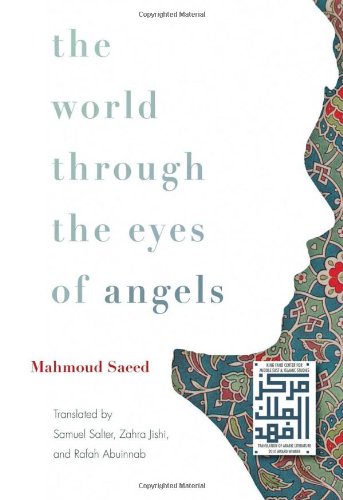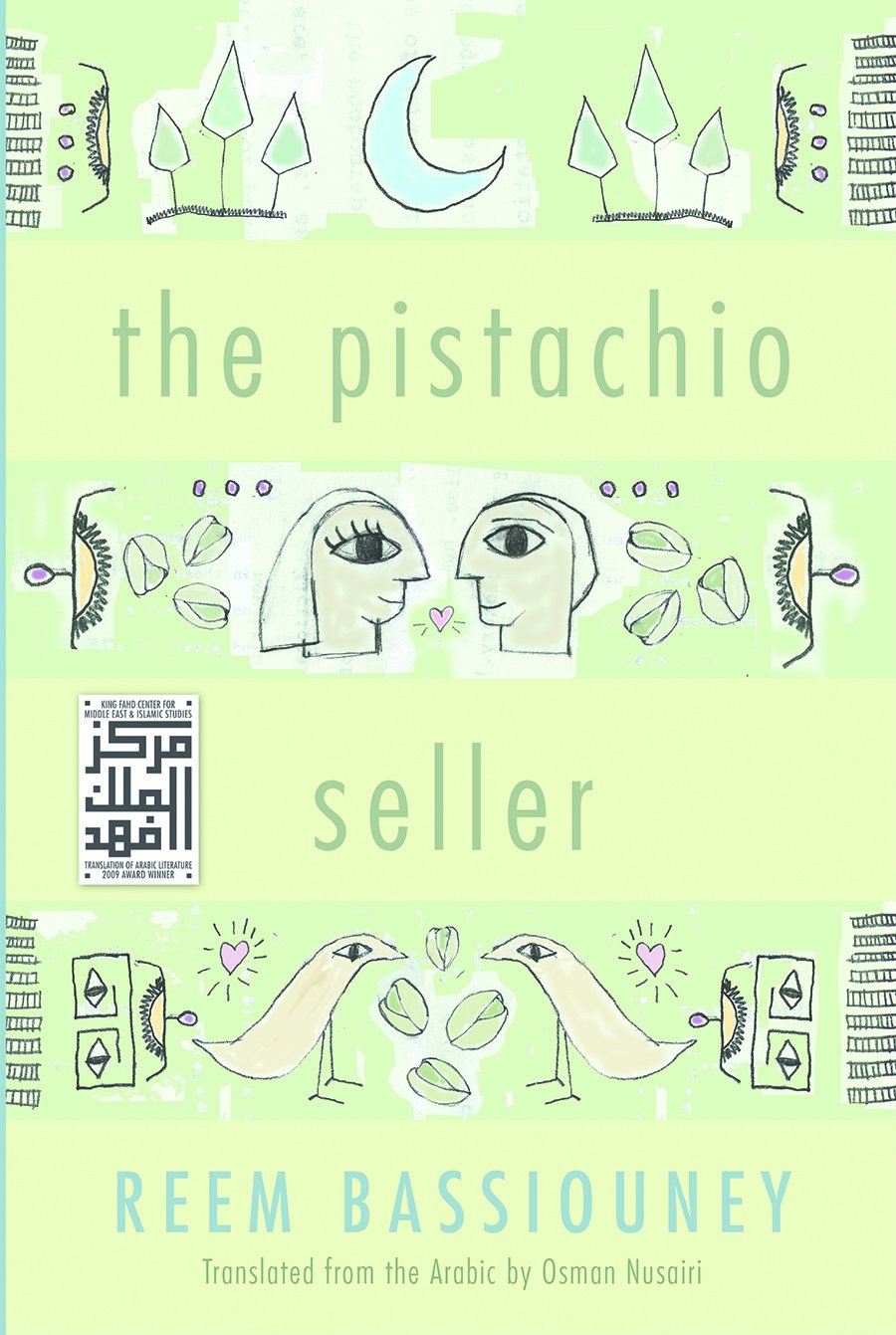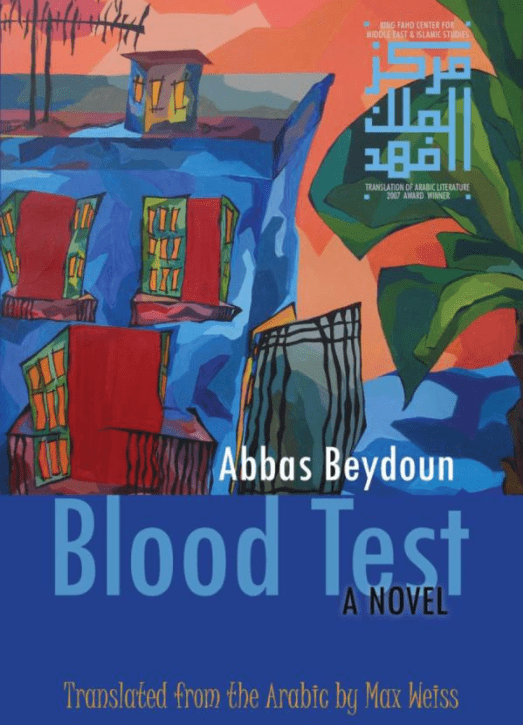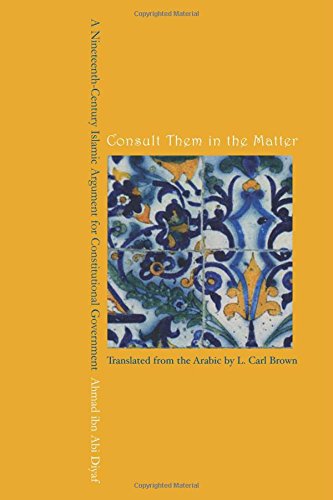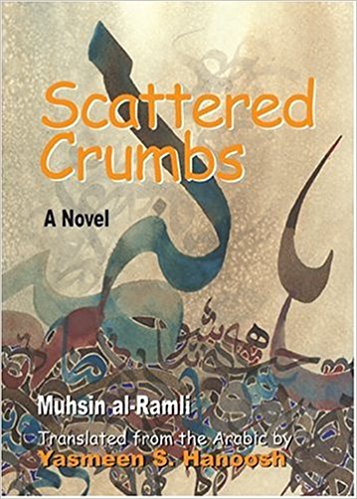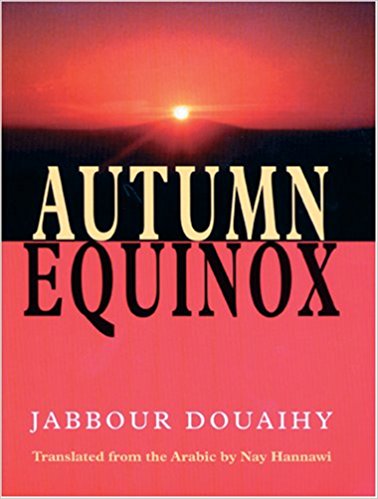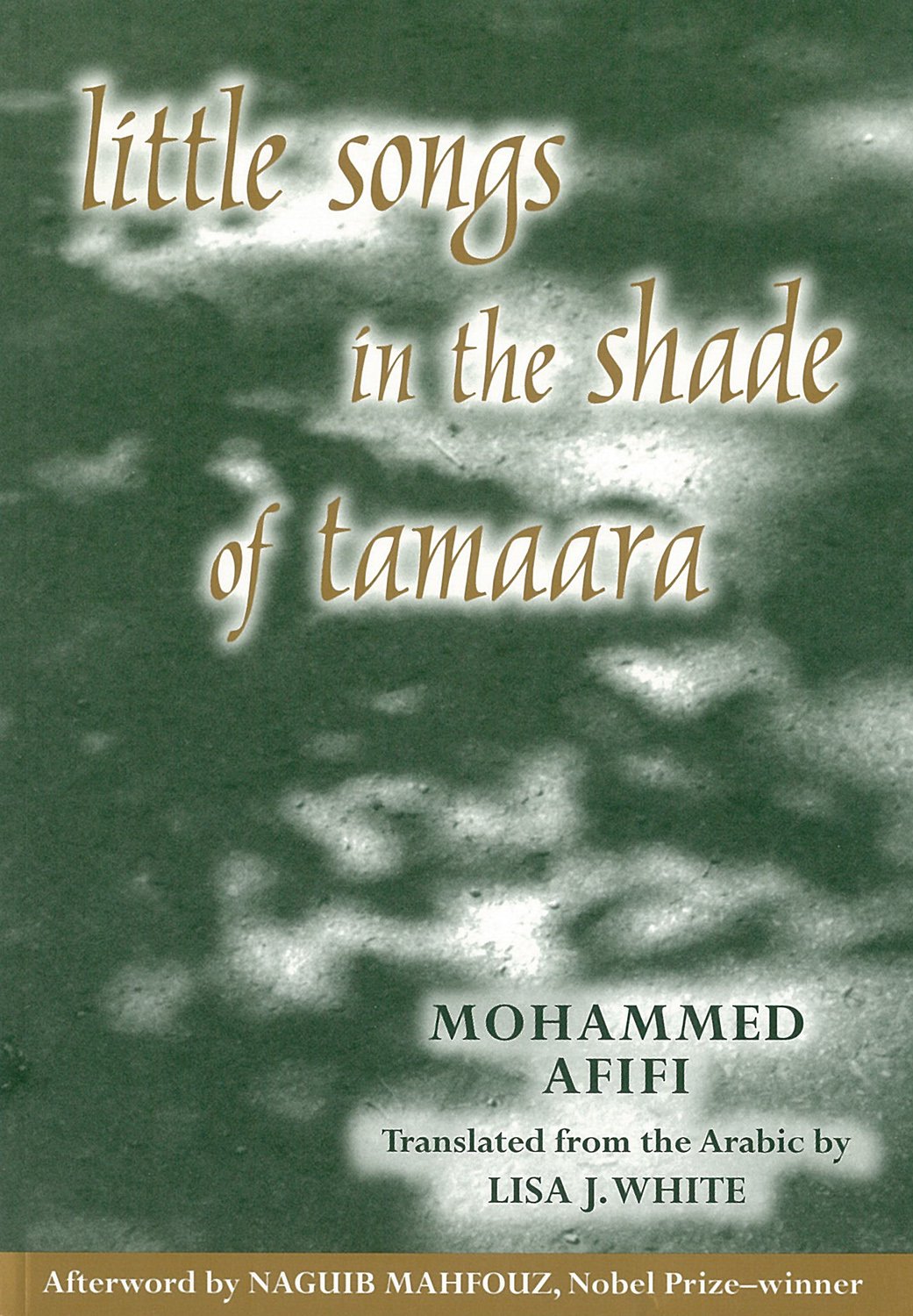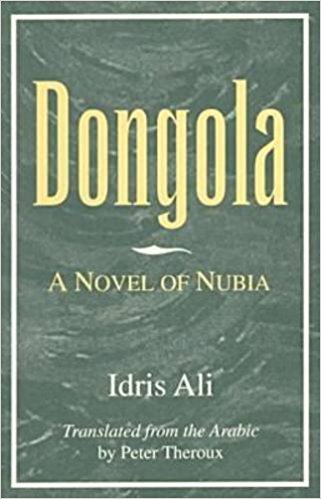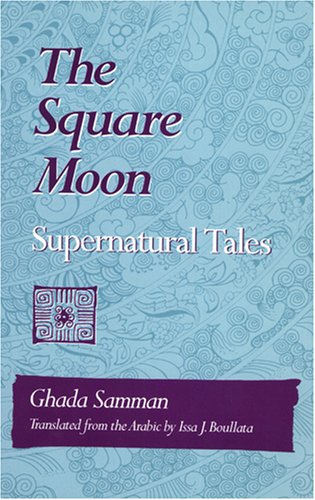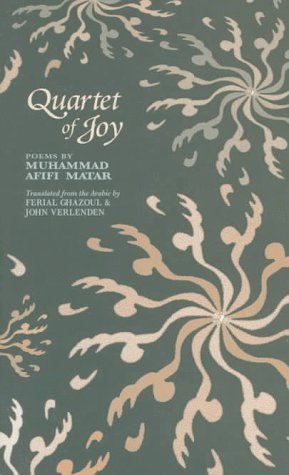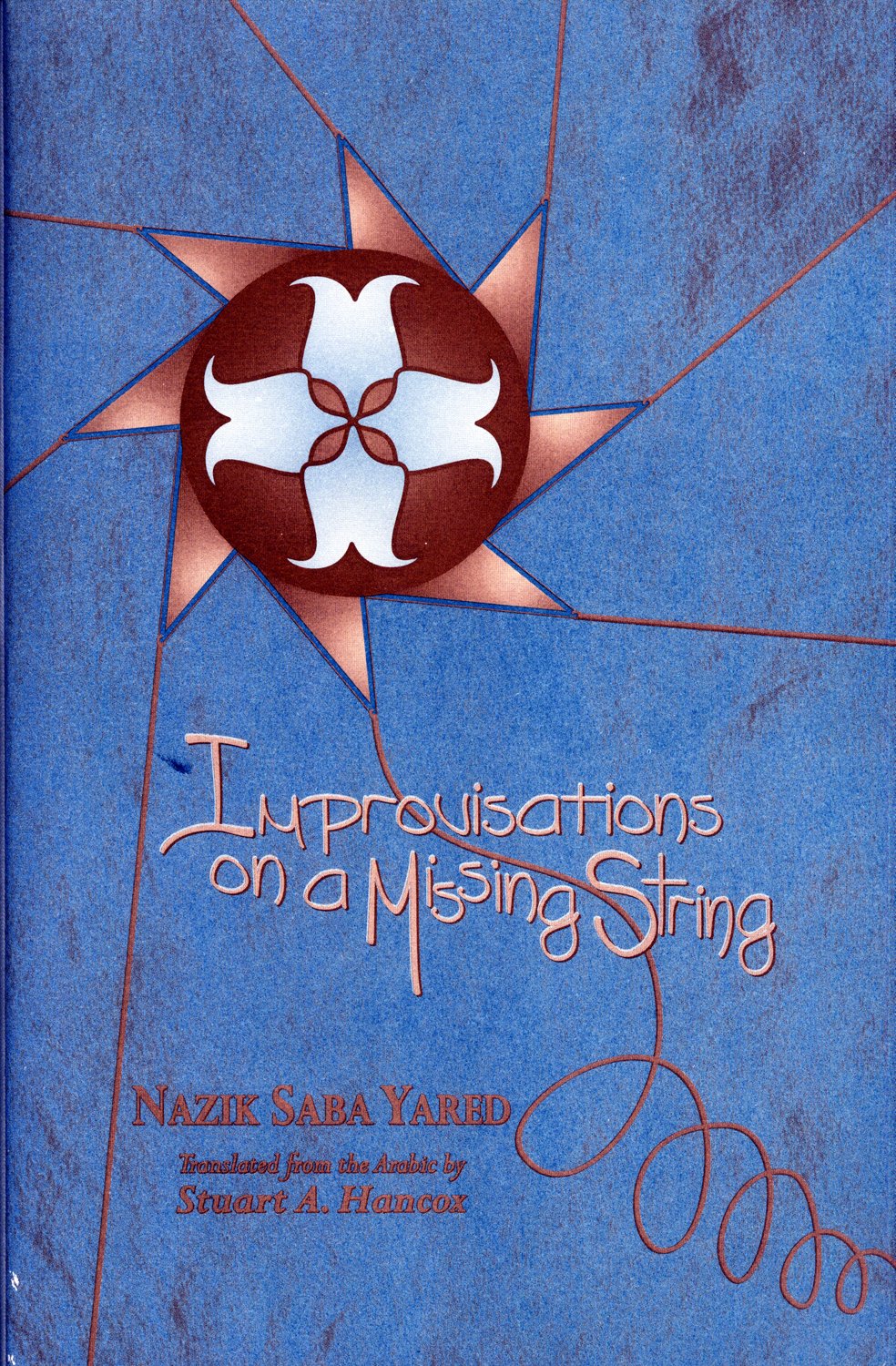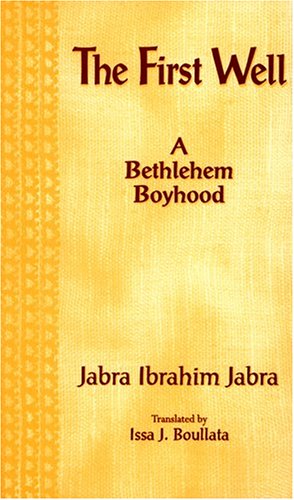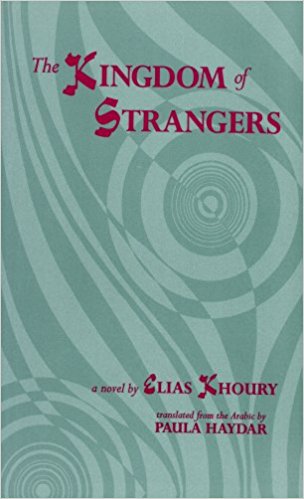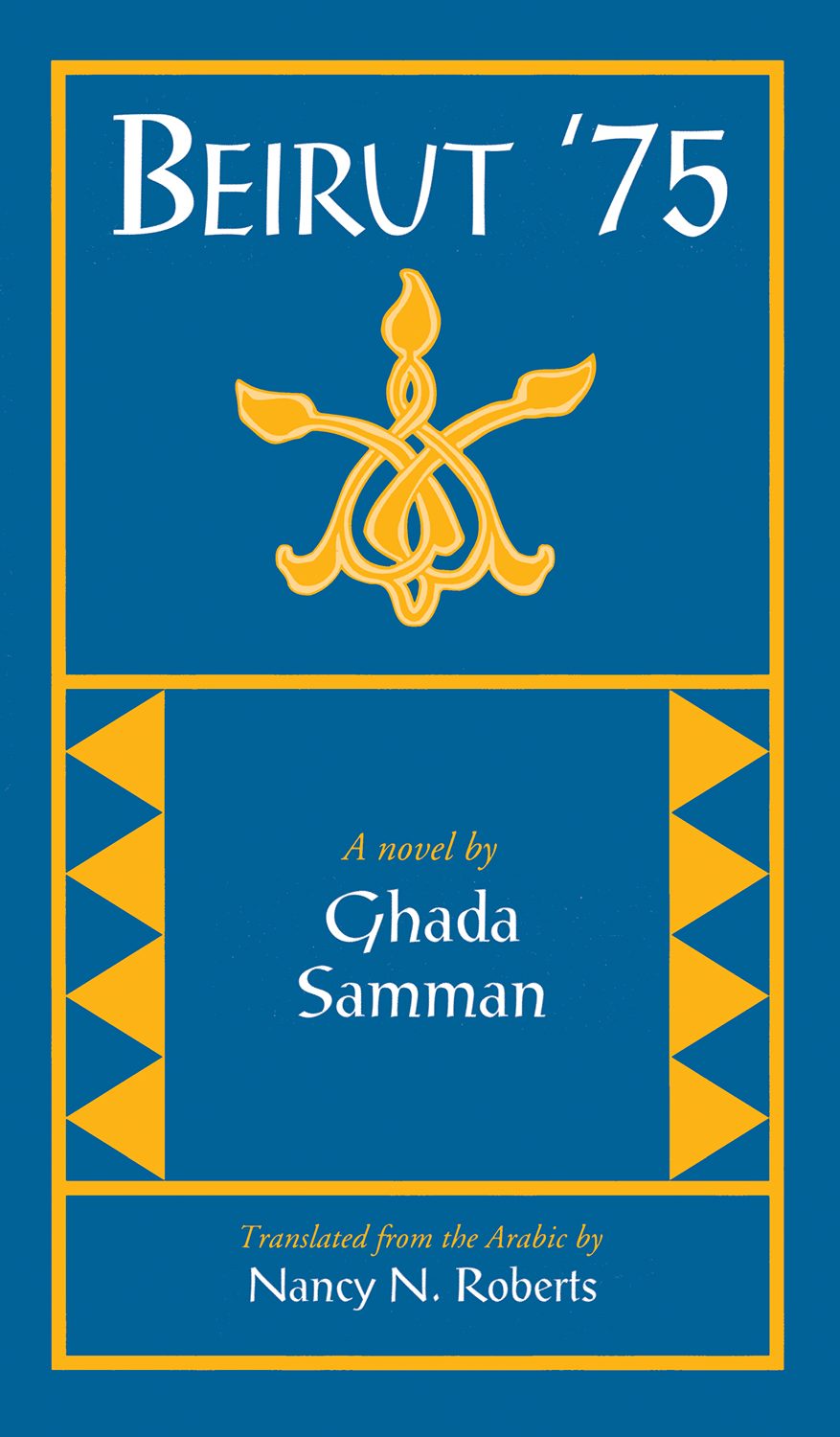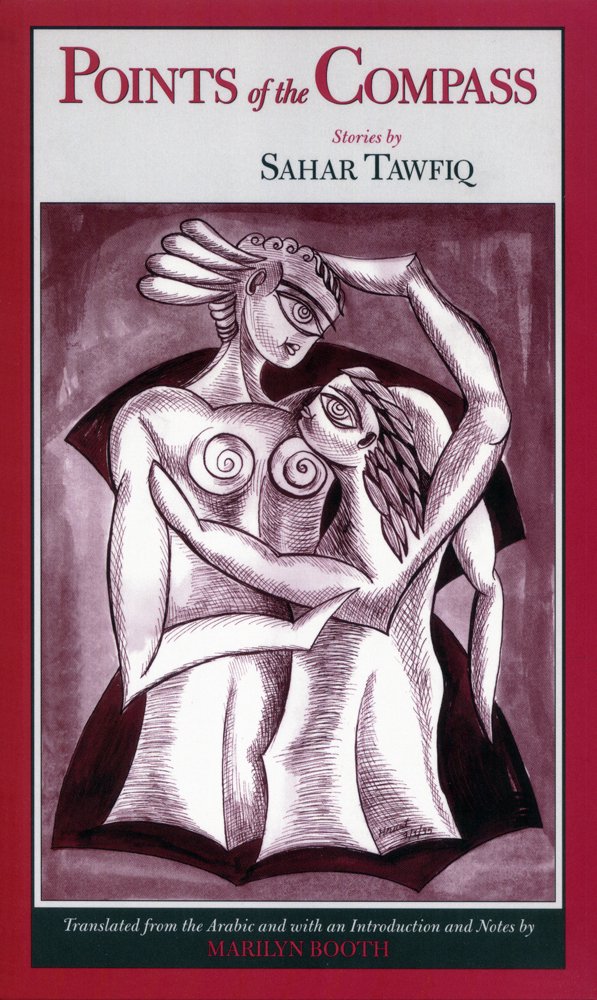Translation of Arabic Literature Award
The King Fahd Center awards an annual prize up to $10,000 for the best booklength
translation of Arabic literature from
any of the following genres: poetry, novel, short story collection, drama, or literary
nonfiction such as autobiography or
memoir. For this award the original author (if still holding rights to the work) will
receive, in lieu of royalties, $5,000 and the translator (or translators) will receive
a total of $5,000.
Independent judges select the award winning translation, which have been published by Syracuse University Press from 2007-2015 as part of its prestigious Middle East Literature in Translation series, and by the University of Arkansas Press.
Submissions are not being accepted at this time.
2015 | Gilgamesh’s Snake and Other Poems
Ghareeb Iskander
Translated from the Arabic by John Glenday and Ghareeb Iskander
ISBN: 978-0-8156-1071-7
Published by Syracuse University Press
The Epic of Gilgamesh is perhaps the greatest surviving work of early Mesopotamian literature. According to legend, Gilgamesh built the city walls of Uruk, modern-day Iraq, to protect his people from external threats. Although the epic records events from more than four thousand years ago, those events echo many of the social and cultural concerns of Iraq today.
In this luminous bilingual collection of poems, Ghareeb Iskander offers a personal response to the epic. Iskander’s modern-day Gilgamesh is a nameless Iraqi citizen who witnessed the fall of the dictatorship, who exists in a constant state of threat, and who dreams, not about eternity, but simply about life. While Gilgamesh was searching for the elixir of life, Iskander’s hero is searching for consolation.
Ghareeb Iskander is an Iraqi poet living in London. He has published numerous collections of poems, including A Chariot of Illusion. His critical work includes Semiotic Trends in the Critique of Arab Poetry.
John Glenday is an award-winning Scottish poet and translator. He is the author of several poetry collections, including Grain and Undark.
2014 | All Faces but Mine: The Poetry of Samih Al-Qasim
Translated from the Arabic by ’Abdulwahid Lu‘lu‘a
ISBN: 978-0-8156-1052-6
Published by Syracuse University Press
2014 | The Perception of Meaning
Hisham Bustani
Translated from the Arabic by Thoraya El-Rayyes
ISBN: 978-0-8156-1059-5
Published by Syracuse University Press
This award-winning collection of seventy-eight pieces of flash fiction presents an intense and powerful vision of today’s world seen through the eyes of an alienated and sardonic author. The Perception of Meaning reads like an alternative history to our world—a collage of small nightmares brought to life by a canon of unlikely historical figures, including Mark Zuckerberg, the lead singer of Megadeth, Stanley Kubrick, the Korean activist Lee Kyoung Hae, and the Mayan poet Humberto Akabal, among others.
A dazzling exemplar of contemporary experimental Arabic literature, The Perception of Meaning deftly captures a historical moment in which Arab societies are increasingly questioning the status quo and rebelling against it. Bustani’s stories speak powerfully to the present and look to the future with a wary eye.
Hisham Bustani is a Jordanian writer and activist, and the author of four collections of short fiction. Renowned for his contemporary themes, style, and language, he has been described by al-Ra’i as "bringing a new wave of surrealism to [Arabic] literary culture, which missed the surrealist revolution of the last century." Bustani’ s work has been translated into four languages with English-language translations appearing in prestigious journals across the US, UK, and Canada, including World Literature Today, The Common, and The Literary Review. His third short-story collection, The Perception of Meaning, won the 2014 University of Arkansas Arabic Translation Award.
Thoraya El-Rayyes, a Palestinian Canadian translator, lives in Amman, Jordan. Her translations have appeared in numerous journals, including Banipal, Open Letters Monthly, and World Literature Today, among others.
2013 | Chronicles of Majnun Layla and Selected Poems
Qassim Haddad
Translated from the Arabic by Ferial Ghazoul and John Verlenden
ISBN: 978-0-8156-1037-3
Published by Syracuse University Press
Chronicles of Majnun Layla and Selected Poems brings together in one volume Haddad’s seminal work and a considerable selection of poems from his oeuvre, stretching over forty years. The central poem, Chronicles of Majnun Layla, recasts the seventh-century myth into a contemporary, postmodern narrative that revels in the foibles of oral transmission, weaving a small side cast of characters into the fabric of the poem. Haddad portrays Layla as a daring woman aware of her own needs and desires and not afraid to articulate them. The author succeeds in reviving this classical work of Arabian love while liberating it from its puritanical dimension and tribal overtones.
The selected poems reveal Haddad’s playful yet profound meditations. A powerful lyric poet, Haddad juxtaposes classical and modern symbols, and mixes the old with the new, the sensual with the sacred, and the common with the extraordinary. Ghazoul and Verlenden’s masterful translation remains faithful to the cultural and historical context in which the original poetry was produced while also reflecting the uniqueness of the poet’s style and his poetics.
Qassim Haddad is a Bahraini poet, notable within the Arab world for his free verse poetry. He has published more than a dozen collections of poetry and works of critical prose, and a memoir. His poems have been translated into several languages including German, English, and French.
Ferial Ghazoul is professor of English and comparative literature at the American University in Cairo. She is the editor of Alif: Journal of Comparative Poetics.
John Verlenden is a writing instructor in the Department of Rhetoric and Composition at the American University in Cairo. He is the co-translator, along with Ferial Ghazoul, of Rama and the Dragon: An Egyptian Novel.
2011 | Tree of Pearls, Queen of Egypt
Jurji Zaydan
Translated from the Arabic by Samah Selim
ISBN: 978-0-8156-0999-5
Published by Syracuse University Press
Shajar al-Durr, known as Tree of Pearls, was one of the most famous Arab queens and the only woman in the medieval Arab world to rule in her own name. Her narrative is one element of a much larger story of the unsettled political climate of thirteenth-century Egypt. In this eponymous novel, Zaydan charts the fall of the Ayyubid Dynasty and the rise of the Mamluke Dynasty through the adventures of Tree of Pearls and Rukn al- Din Baybars, a young Mamluke commander who eventually triumphs as the ruler of Egypt. War, political intrigue, murder, and a female ruler who was born a slave combine for an irresistible story, while Zaydan’s keen observations on royal politics and subverted gender roles offer readers a richly detailed glimpse of the cultural milieu of the time.
Tree of Pearls, originally published in 1914, is the last in a famous series of historical novels written by Zaydan, an accomplished historian whose books continue to be read widely in the Arab world today. Selim’s fluid translation introduces an English audience to one of the Arab world’s influential writers.
Jurji Zaydan (1861–1914) was one of the most important Arab writers of the late nineteenth and early twentieth centuries. He founded Al-Hilal, the foremost cultural and literary journal in the Arab world. Zaydan is the author of two canonical, multivolume histories of Arabic literature and Islamic civilization and twentythree historical novels.
Samah Selim is assistant professor in the Department of African, Middle Eastern and South Asian Languages and Literatures at Rutgers University. She is the author of The Novel and the Rural Imaginary in Egypt, 1880–1985. Her translations include The Collar and the Bracelet by Yahya Taher Abdullah, winner of the Saif Ghobsh-Banipal Prize, and Brooklyn Heights by Miral al-Tahawy.
2010 | The World Through the Eyes of Angels
Mahmoud Saeed
Translated by Samuel Salter, Zahra Jishi, and Rafah Abuinnab
ISBN: 978-0-8156-0991-9
Published by Syracuse University Press
Mahmoud Saeed, a prominent Iraqi novelist, has written more than twenty novels and short story collections. He was imprisoned several times and left Iraq in 1985 after the authorities banned the publication of some of his novels, including Zanka bin Baraka (1970), which won the Ministry of Information Award in 1993.
Samuel Salter has lived and traveled in Latin America, Europe, and the Middle East. He has worked as a teacher and a translator. Under the pseudonyms Sam Reaves and Dominic Martell, he has published ten novels.
Zahra Jishi is a Lebanese public health practitioner who currently resides in Cleveland, Ohio.
Rafah Abuinnab worked and lived in Jordan most of her life until moving to Chicago in 2000. Currently, she teaches Arabic at DePaul University.
2009 | The Pistachio Seller
Reem Bassiouney
Translated from the Arabic by Osman Nusairi
ISBN: 978-0-8156-0919-3
Published by Syracuse University Press
"It was Saturday. I remember. And while he was standing on a step ladder in the hall, changing a light bulb in the faint light coming through the window, I decided to love him." So begins this wonderfully exuberant novel of quixotic adolescent longing and the enduring search for self. Set in middle-class urban Egypt, the story chronicles young Wafaa’s struggle to come to terms with her own sexuality and her romantic infatuation with her cousin Ashraf, a spoiled and confident young Egyptian who was educated in England. Ashraf’s worldliness and carefree attitudes stand in sharp contrast to Wafaa’s provincial Islamic piousness.
As both mature they find outside events encroaching upon their sheltered lives, forcing each to confront challenges to their youthful ideologies. Ashraf is chastened by an economic turnaround that takes him to the United States as an impoverished immigrant, and Wafaa begins to question her rigid fundamentalist beliefs that seem increasingly inadequate to make sense of the complex world around her.
Reem Bassiouney effortlessly captures the voices of her characters, bringing them to life and allowing the reader to be fully immersed in their lives as they unfold in moving, often funny, and eventually triumphant ways.The Pistachio Seller introduces Bassiouney’s work to an English audience for the first time.
Reem Bassiouney is an acclaimed contemporary Arabic writer. She has published five novels in the Middle East including The Smell of the Sea. She is assistant professor of Arabic at Georgetown University in Washington, D.C.
Osman Nusairi is a theater director whose plays have been broadcast by BBC World Radio and performed in London theaters. He is the translator of Nawal El-Saadawi’s novel Two Women in One.
2007 | Blood Test: A Novel
Abbas Beydoun
Translated from the Arabic by Max Weiss
ISBN: 978-0-8156-0912-4
Published by Syracuse University Press
Widely known throughout the Arab world as a leading poet, journalist, and literary critic, Abbas Beydoun’s writing is infused with the politics and culture of his native Lebanon. In Blood Test, his first novel, Beydoun recounts the efforts of a young man to explore his own history and identity through his encounters with the family and friends who surround him. The sudden death of his father prompts him to follow the physical and psychological traces he left behind, a journey that raises as many questions as it answers. The young man’s search for a sense of belonging and rootedness leads him both forward and back as the narration travels in time and place over two continents and several generations.
Max Weiss’s fluid translation effortlessly conveys Beydoun’s impassioned language and textured storytelling. Blood Test is a passport to places both real and imagined, leaving readers enriched by their travels.
Abbas Beydoun is the author of eleven collections of poetry and one novel. He is the cultural editor of the cultural supplement of the Beirut daily newspaper As-Safir.
Max Weiss is a junior fellow at the Harvard Society of Fellows.
2005 | Consult Them in the Matter: A Nineteenth-Century Islamic Argument for Constitutional Government
Ahmad ibn Abi Diyaf
Translated from the Arabic by L. Carl Brown
ISBN: 978-1-55728-803-5
Published by University of Arkansas Press
The 2005 winner of the The Arkansas Arabic Translation Award, sponsored by the King Fahd Center for Middle East and Islamic Studies at the University of Arkansas and the University of Arkansas Press, though written in the nineteenth century, is a richly contextualized precursor of modern Muslim wrestlings with notions of democracy and constitutionalism. Translated by the distinguished Middle East historian L. Carl Brown, this important historical work is now available to English language readers for the first time.
Toward the end of his long career as an official in the Tunisian government, Ahmad ibn Abi Diyaf (Bin Diyaf) took on the task of writing a history of his country. The result was a multivolume history, concentrating on the period that Bin Diyaf experienced first-hand from within the small circle of Tunisia’s government, where he had served from the 1820s to the 1860s. It was as if a Harry Hopkins, Arthur Schlesinger Jr., or Henry Kissinger had served not just a Roosevelt, Kennedy, or Nixon, but all three presidents for an unbroken forty-year period. Not only the most penetrating and most perceptive study of nineteenth-century Tunisian political life, Bin Diyaf’s history was illustrative of the activities and ideas in play throughout the larger Ottoman world.
His work was a history with a thesis. Bin Diyaf sought to show the need for his country, and for that matter the larger Ottoman world, to adopt representative and responsive forms of government as existed in Europe.
His purpose was most clearly set out in the Muqaddima or Introduction to his monumental work, which Brown has translated. The ideas produced in this text roughly a century and a half ago were not institutionalized, but they did catch hold as ideas and goals influencing later developments.
2003 | Scattered Crumbs: A Novel
Mushin al-Ramli
Translated from the Arabic by Yasmeen S. Hanoosh
ISBN: 978-1-55728-750-2
Published by University of Arkansas Press
Iraqi novelist Muhsin al-Ramli lives in Madrid, Spain, where he is the editor of Alwah, a journal of modern Arabic literature and thought. He is also the author of The Happy Nights of Bombing, Papers: Far Away from Tangier—Short Stories, and Searching for a Vivacious Heart: A Collection of Plays.
Yasmeen Hanoosh is an Iraqi-born doctoral student in Arabic language and literature at the University of Michigan. She is the winner of the 2003 Arabic Translation Award.
2001 | Autumn Equinox
Jabbour Douaihy
Translated from the Arabic by Nay Youssef Hannawi
ISBN: 978-1-55728-707-6
Published by University of Arkansas Press
Jabbour Douaihy’s Autumn Equinox is a diary of a young man recently resettled in his Lebanese village after going to college in the United States. It continues from the end of May through the September equinox of 1986, narrating his efforts to remake himself through adjustments to his reading, writing, and eating habits, his dress, his posture, his family relationships, his love life...
The diary begins with a view of an Israeli bombing in South Lebanon and ends with a description of refugee families fleeing to the mountain villages. Otherwise, except for allusions to what is going on in the capital, the Lebanese Civil War is far from the story, although its violence has never been far from this village. America, personified by a Lara who does not answer his letters, is a faraway land of nostalgia. The village is here, at the center of the young man’s narration, peopled by comic characters who seem to insist on their own unchanging selfhoods and to resist his attempts to be different.
The Civil War and the Occupation, the author seems to be saying, are not the only sources of turmoil. Violence and revenge have been part of the people’s consciousness, and people might indeed need to redefine themselves while at the same time adjusting to the environment.
Jabbour Douaihy is a novelist and professor of French literature in the Lebanese University. Among his publications are the novels Rayya of the River, The Forest Soul, and a collection of short stories, Dying between Relatives Is Sleeping, all in Arabic. Autumn Equinox is the first of his novels to be translated into English.
Nay Youssef Hannawi received her B.A. in English at the American University in Beirut and an M.F.A. in literary translation from the University of Arkansas. She lives in Kuwait where she works as a translator and teaches English at Kuwait University.
2000 | Little Songs in the Shade of Tamaara
Mohammed Afifi
Translated by Lisa J. White
ISBN: 978-1-55728-614-7
Published by University of Arkansas Press
Paradise, for the skeptic Mohammed Afifi, was just four steps down from his porch into a sunny garden. There he would sit, morning and evening, in the shadow of Tamaara, his beloved tamarhinna tree, soaking up the sights, sounds, and smells of his precious corner of the natural world. From an old yellow straw chair, Afifi would train his perceptive gaze on that garden in all its detail. Flora and fauna blessed him with honorary membership in their enchanted realm. Only the rare downpours of winter and the dust storms of spring could banish him indoors. Yet, whether inspired at the side of the heater, purring black cat on his lap, or next to the pansy bed, with ecstatic flocks of bee-eaters overhead, Afifi’s intimate, whimsical musings radiate a profound and unique sense of place.
Lisa J. White’s nuanced translation of Taramiim fii Dhill Taraara captures Afifi’s impish, ironic sense of humor and his unsparing honesty. She handles Afifi’s parting gift to the world with great care and honor. Mohammed Afifi died in 1981, in winter, just after completing this fictionalized memoir. Majestic and melancholy, mysterious and magical—the essence of his world, Afifi’s extraordinary garden, is here revealed to the English-speaking world.
Paradise, for the skeptic Mohammed Afifi, was just four steps down from his porch into a sunny garden. There he would sit, morning and evening, in the shadow of Tamaara, his beloved tamarhinna tree, soaking up the sights, sounds, and smells of his precious corner of the natural world. From an old yellow straw chair, Afifi would train his perceptive gaze on that garden in all its detail. Flora and fauna blessed him with honorary membership in their enchanted realm. Only the rare downpours of winter and the dust storms of spring could banish him indoors. Yet, whether inspired at the side of the heater, purring black cat on his lap, or next to the pansy bed, with ecstatic flocks of bee-eaters overhead, Afifi’s intimate, whimsical musings radiate a profound and unique sense of place.
Lisa J. White’s nuanced translation of Taramiim fii Dhill Taraara captures Afifi’s impish, ironic sense of humor and his unsparing honesty. She handles Afifi’s parting gift to the world with great care and honor. Mohammed Afifi died in 1981, in winter, just after completing this fictionalized memoir. Majestic and melancholy, mysterious and magical—the essence of his world, Afifi’s extraordinary garden, is here revealed to the English-speaking world.
1998 | Dongola: A Novel of Nubia
Idris Ali
Translated from the Arabic by Peter Theroux
ISBN: 978-1-55728-532-4
Published by University of Arkansas Press
In this, the first Nubian novel ever translated, Awad Shalali, a Nubian worker in modern Egypt, dreams of Dongola—the capital of medeval Nubia, now lost to the flood waters of the Aswan High Dam. In Dongola, the Nubians reached their zenith. They defeated and dominated Upper Egypt, and their archers, deadly accurate in battle, were renowned as “the bowman of the glance.
Helima, Awad’s wife, must deal with the reality of today’s Nubia, a poverty-stricken bottomland. Men like Awad now work in Cairo for good wages while the women remain at home in squalor, dominated by the Islam of their conquerors and ignorant of the glory now covered by the Nile’s water. Left to tend Awad’s sick mother and his dying country, Halima grows despondent and learns the truths behind the Upper Egyptian lyric: “Time, you are a traitor—what have you done with my love?
Through his characters’ pain and suffering, Idris Ali paints in vibrant detail, with wit and a keen sense of history’s absurdities, the story of cultures and hearts divided, of lost lands, impossible dreams, and abandoned lives.
Idris Ali is the author of three short story collections and another novel, Explosion of a Skull. Self-taught in literature, he attended the Cairo Religious Institute of Al-Azhar and currently lives in Cairo, Egypt.
Peter Theroux is the author of three books and the translator of six. He lives in Washington, D.C.
1998 | The Square Moon: Supernatural Tales
Ghada Samman
Translated from the Arabic by Issa J. Boullata
ISBN: 978-1-55728-534-8
Published by University of Arkansas Press
Ghada Samman is Lebanese, was born in Damascus, Syria, and currently lives in Paris, France, with her husband, Bashir. She was educated in English literature at Damascus University and the American University in Beirut. She now owns her own publishing company. Ms. Samman has written a total of twenty-eight books in a variety of genres and has been translated into nine languages.
Issa J. Boullata is a professor of Arabic Literature and Language at McGill University in Montreal, Canada. Born in Jerusalem in 1929, he is a United States citizen, educated at the University of London, recipientof numerous awards and recognitions, and author of several books in both Arabic and English.
1997 | Quartet of Joy: Poems
Muhammed Afifi Matar
Translated from the Arabic by Ferial Ghazoul and John Verlenden
ISBN: 978-1-55728-487-7
Published by University of Arkansas Press
Ghada Samman is Lebanese, was born in Damascus, Syria, and currently lives in Paris, France, with her husband, Bashir. She was educated in English literature at Damascus University and the American University in Beirut. She now owns her own publishing company. Ms. Samman has written a total of twenty-eight books in a variety of genres and has been translated into nine languages.
Issa J. Boullata is a professor of Arabic Literature and Language at McGill University in Montreal, Canada. Born in Jerusalem in 1929, he is a United States citizen, educated at the University of London, recipientof numerous awards and recognitions, and author of several books in both Arabic and English.
Ferial Ghazoul is professor of English and comparative literature at the American University in Cairo. She is the editor of Alif: Journal of Comparative Poetics.
John Verlenden is a writing instructor in the Department of Rhetoric and Composition at the American University in Cairo. He is the co-translator, along with Ferial Ghazoul, of Rama and the Dragon: An Egyptian Novel.
1997 | Improvisations on a Missing String
Nazik Saba Yared
Translated from the Arabic by Stuart A. Hancox
ISBN: 978-1-55728-495-2
Published by University of Arkansas Press
Improvisations on a Missing String tells the story of Saada Rayyis, who, after a mastectomy and prior to another operation which she may not survive, considers the course of her life with the purpose of understanding not only where she has been, but also where she is going. In her attempt to cope with complex feelings of alienation and insecurity, she struggles against traditional expectations in order to secure a sense of belonging and fulfillment - but always on her own terms.
From her childhood in Palestine, through her university studies in Cairo, and finally as a teacher in Beirut, we follow the development of this independent woman as she comes to terms with her feelings about family, lovers, politics, art, and finally her own aspirations for belonging.
1996 | Questions and Their Retinue: Selected Poems, 1972–1994
Hatif Janabi
Translated from the Arabic by Khaled Mattawa
ISBN: 978-1-55728-431-0
Published by University of Arkansas Press
Janabi's poems deal with war, death, perception, and truth, drawing from his family life, his exile in Poland, violence in Iraq, and his experience in the United States.
Hatif Janabi teaches Arabic literature and world drama at the University of Warsaw.
1995 | The First Well: A Bethlehem Boyhood
Jabra Ibrahim Jabra
Translated by Issa J. Boullata
ISBN: 978-1-55728-349-8
Published by University of Arkansas Press
The First Well is an engaging autobiographical account of Jabra’s boyhood in Bethlehem, where he was born in 1920, and later in Jerusalem, where he moved as a teenager with his parents.Through the eyes and heart of a sensitive, highly imaginative boy, Jabra describes the first sources of his artistic sensibility—the houses, fields, and orchards of his childhood and the Christian, Muslim, and Jewish cultures of Bethlehem and Jerusalem. The First Well is the story of his intellectual and spiritual growth nurtured and encouraged by his family, the Eastern Orthodox Church, and his teachers. His story is both captivatingly innocent and full of wisdom. Wordsworth’s observation, “The Child is father of the Man,” is entirely apt as Jabra’s literary and artistic interests take root and blossom. Here is a chronicle of the experiences and events he drew upon as he became one of the leading authors of the Arab world.
Jabra Ibrahim Jabra was a sophisticated writer whose works include novels, short stories, essays, poetry, literary and art criticism, and Arabic translations of Shakespeare’s plays and sonnets as well as over thirty Western literary classics. Jabra died in Baghdad on December 12, 1994.
Issa J. Boullata is a professor of Arabic Literature and Language at McGill University in Montreal, Canada. Born in Jerusalem in 1929, he is a United States citizen, educated at the University of London, recipientof numerous awards and recognitions, and author of several books in both Arabic and English.
1995 | The Kingdom of Strangers
Elias Khoury
Translated from the Arabic by Paula Haydar
ISBN: 978-1-55728-433-4
Published by University of Arkansas Press
In a search through the lore of war-ravaged Lebanon, Elias Khoury weaves tales within tales. Among them are the stories of a Lebanese monk murdered in Jerusalem; of Faysal, an eleven-year-old Palestinian boy who witnesses the massacre of his parents, brothers, and sisters; of a friendship between an Arab and a Jew who meet in New York City; and of Widad, "the Circassian," a girl kidnapped from her village in Azerbaijan and sold as a maid in Beirut to Iskander Naffaa, who subsequently falls in love with her and abandons everything to marry her.
The novel takes place beside the Dead Sea and on the hills of Jerusalem, in the streets of Beirut, in the remote mountain villages of Lebanon, and in the alleys of Shatilla Refugee Camp. With every setting, Khoury elicits the legends and folk tales of the surroundings, tapping events from the turbulent history of the Middle East to divine the ways in which truths become myths and stories. To Khoury's narrator, these stories eventually grow to signify much more than the reality he lives day to day.
1995 | Beirut '75: A Novel
Ghada Samman
Translated by Nancy N. Roberts
ISBN: 978-1-55728-382-5
Published by University of Arkansas Press
Ghada Samman’s first full-length novel, originally published in Arabic in 1974, is a creative and daring work prophetically depicting the social and political causes of the Lebanese civil war in 1975. The story opens in a taxi in which we meet the five central characters, each seeking something to give life meaning: security, fame, wealth, dignity, recognition, freedom from fear and from tradition-sanctioned, dehumanizing practices. Once they reach the capital city of Beirut, on which they’ve pinned their hopes, they all discover, man and woman alike, that they are victims of forces either partially or completely beyond their control, such as political corruption, class discrimination, economic and sexual exploitation, destruction of the natural environment, and blind allegiance to tradition.
Beirut ’75 addresses struggles of Arab society, particularly the Lebanese, but the message is one of the universal human condition. Thus, in addition to this superb English-language presentation, Samman’s novel has already appeared in German (two editions), French, and Italian versions.
Ghada Samman is Lebanese, was born in Damascus, Syria, and currently lives in Paris, France, with her husband, Bashir. She was educated in English literature at Damascus University and the American University in Beirut. She now owns her own publishing company. Ms. Samman has written a total of twenty-eight books in a variety of genres and has been translated into nine languages.
Nancy Roberts is an English instructor at Al al-Bayt University. Educated in the United States in Arabic language and literuatre, she currently makes her home in Mafraq, Jordan.
1995 | Points of the Compass: Stories
Sahar Tawfiq
Translated from the Arabic by Marilyn Booth
ISBN: 978-1-55728-385-6
Published by University of Arkansas Press
